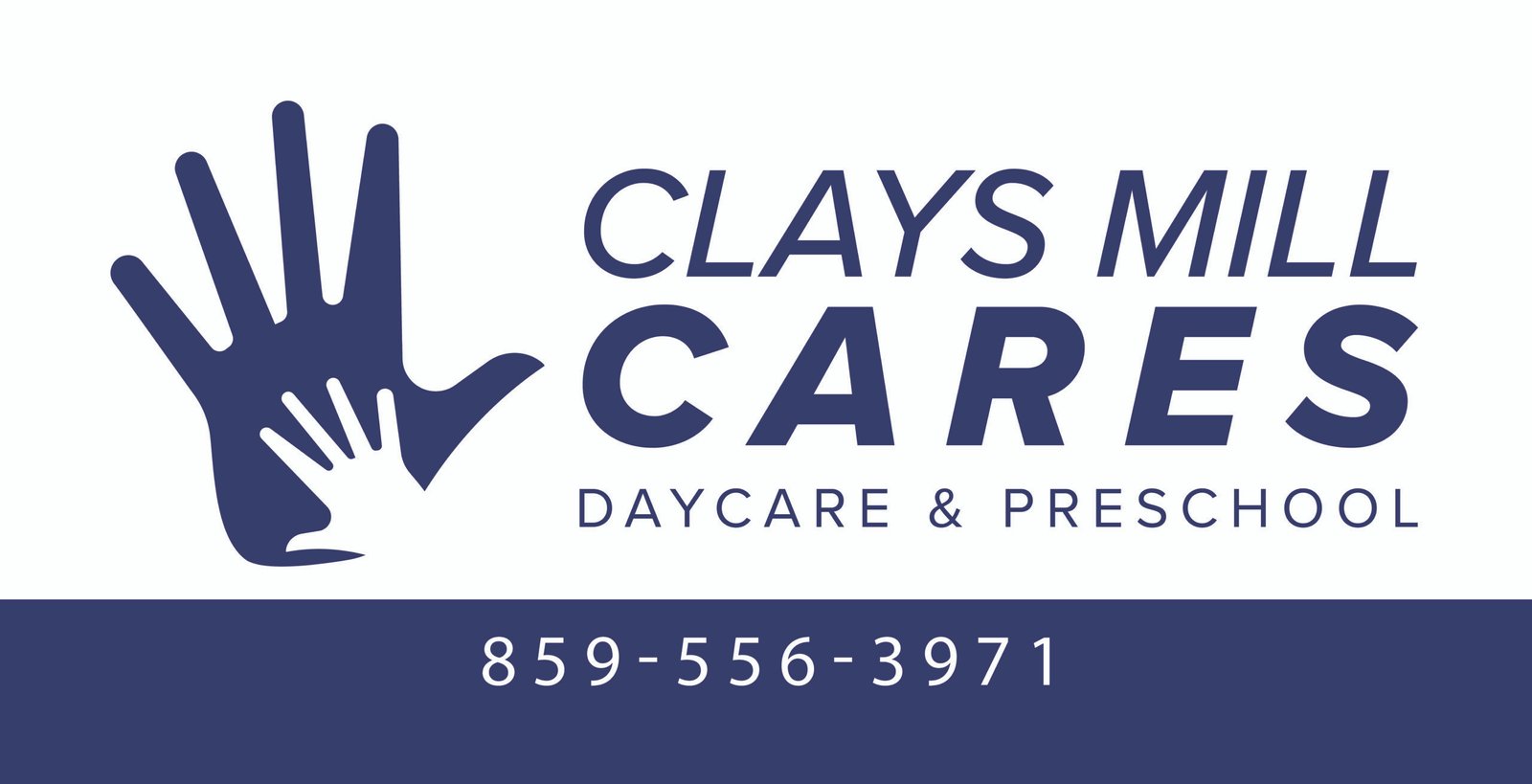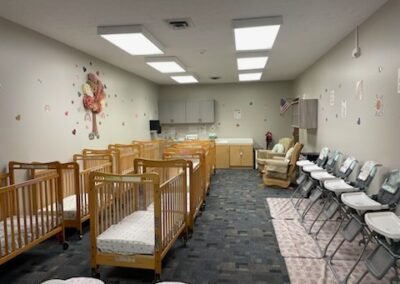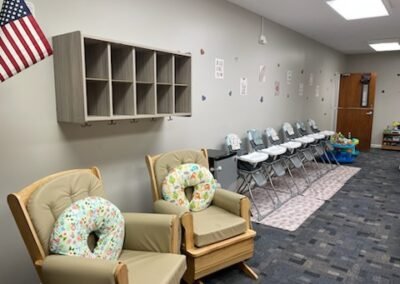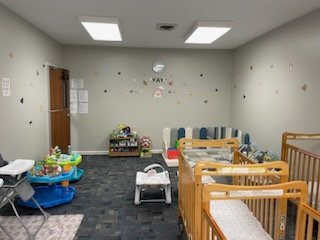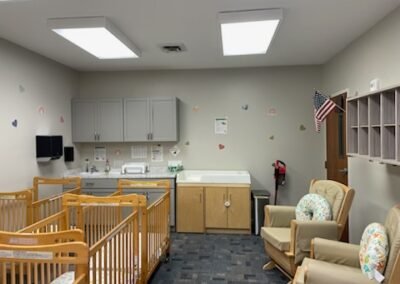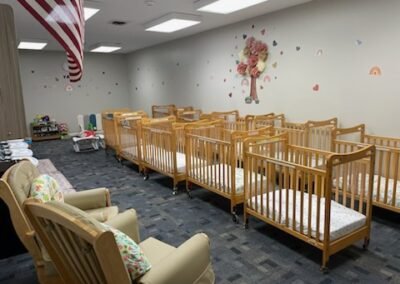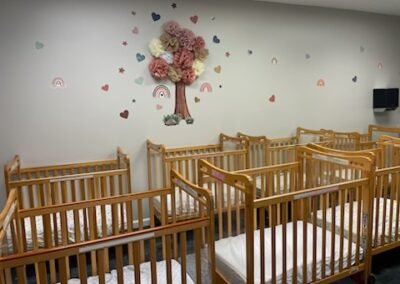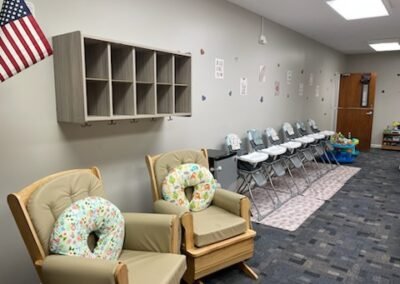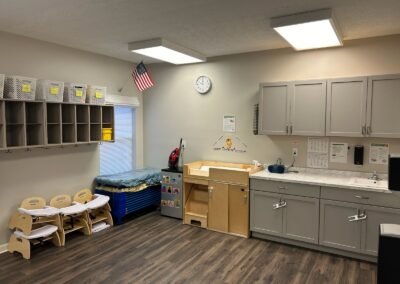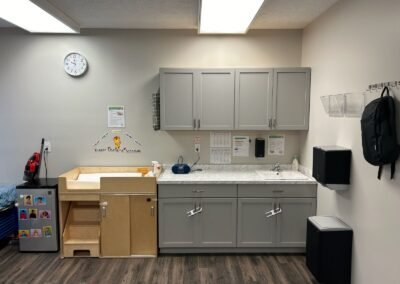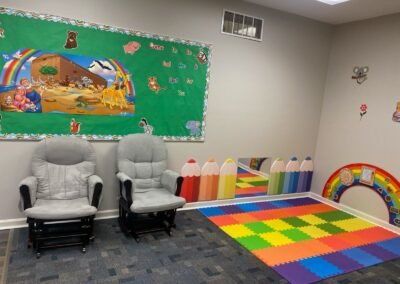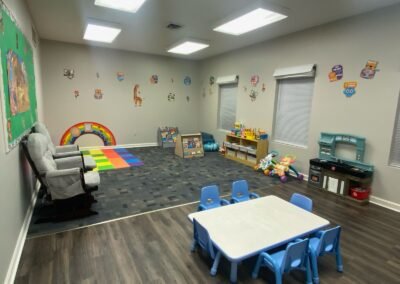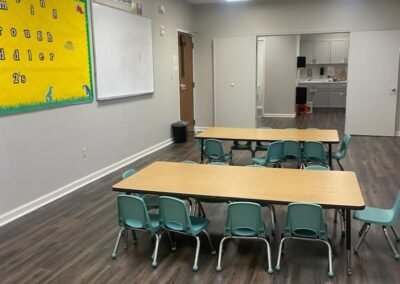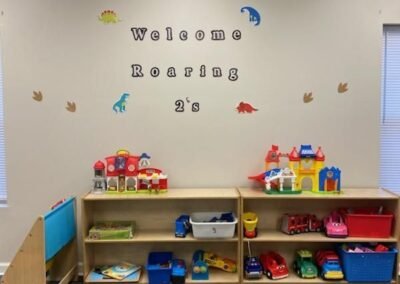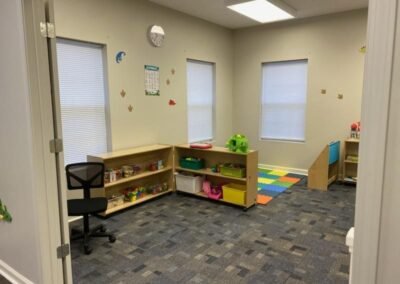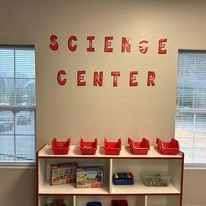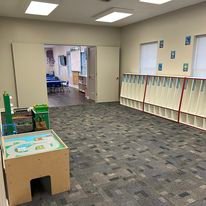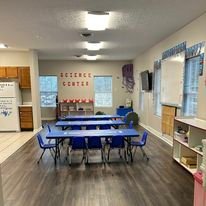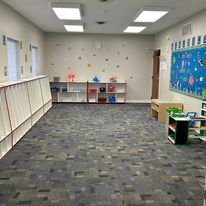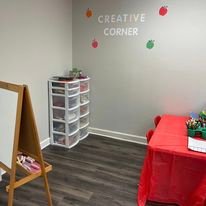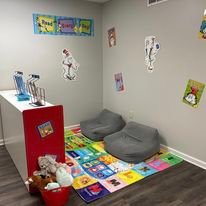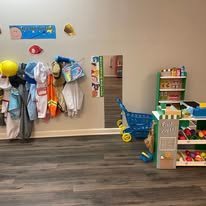Programs & Curriculums
Apply NowAbeka Curriculum
Language Arts
Abeka has been successfully training young readers for more than 40 years, teaching basic reading skills using phonics. Our phonics approach isn’t just sight-reading that’s been garnished with phonics. It’s systematic. It’s thorough. And it works. With a solid foundation for developing exceptional reading skills, students begin reading actual words very early.
Social Studies
Four- and five-year-olds learn about community helpers and simple safety rules, the beginnings of American history, and children around the world. These studies include simple geography and an activity book for K5 students.
Numbers
Abeka teaches the basics in counting, number recognition, and number concepts. Four-year-olds learn number concepts, before-and-after, and largest-and-smallest for numbers 1–20, as well as simple addition facts like 1 + 9. For five-year-olds, their mastery of numbers goes from 1 to 100. They count and write by twos, fives, and tens, and learn addition facts through the 10 Addition Family. They also learn money value, telling time, number words, and number sequence.
Science/Health
Four-year-olds begin to learn the basics of health and safety, while five-year-olds learn about themselves and the world around them with God’s World, our science book for K5. They’ll leave Kindergarten having already been introduced to God’s plan for seeds, animals, the seashore, health, weather, and seasons.
Bible
Abeka’s Bible Program presents the Word of God in story form through our colorful Flash-a-Cards. K4 and K5 each have their own sets of cards and lessons, which flow from the heart of the teacher into the heart of the student. The detailed Curriculum Lesson Plans include daily lessons, preparation tips, Bible doctrinal drill, hymns and choruses, and Scripture memory to assist you in imparting a biblical worldview from an early age. Plus, Little Ones Sing unto the Lord and Sing unto the Lord give Kindergarten students a full slate of hymns and choruses to be used during Bible time and other times.
In our infant classes, we offer your child love and affection while trying to mimic what you are doing at home by following the same schedule and taking an interest in finding out your child’s likes and dislikes. We are also happy to help in the many milestones and changes that occur in your child’s first year of life.
Infants are interacted with in various ways throughout the day. We…
- Talk to them
- Sing to them
- Rock them
- Get on the floor with them if physically able
- Help with hand/eye coordination
- Help with the next milestone – ex. Crawling, walking, etc.
Milestones to reach before moving to 1-year-old class:
• Drink from a cup
• Pick up food
• Off-bottle and formula
Our one-year-old class is divided into two groups. We have a young one-year-old class (approx. 12-18 months) and an older one-year-old class (approx. 18-24 months) in order to be able to do more age-appropriate activities. In the ones, your child will sing, be read to, color, finger paint, learn through play, have sensory activities, learn with alphabet flash cards, go for a stroll in our 6-passenger stroller, visit our indoor playroom, outside time (weather permitting) and more.
Objectives:
- Colors: Red, Yellow, Blue, Green, Purple, Orange, Black, Brown
- Shapes: Circle, Square, Triangle and Rectangle
- Numbers: 1-5 (if class masters 1-5, then go to 10)
- Letters: ABC song
• Parts of Body: eyes, ears, nose, mouth, teeth, tongue, arms, hands, fingers, legs, feet, toes, head, chin, knees, shoulders, and elbows. - How to color with crayons (without putting them in their mouth)
- How to keep their shoes on
- How to sit in a chair
- How to put toys away
We offer your child readiness activities through our preschool program with Language Development, Math, Art, Science, Learning Centers, Music, and Movement Education. This will better prepare your child for a happier adjustment in Kindergarten.
K2 Classes
Abeka Curriculum
• Learning Numbers with Button Bear
• Arts and Crafts with Button Bear
• Child Art for 2s
• Preschool Bible Coloring Sheets
Objectives
• Colors: Red, Yellow, Orange, Blue, Purple, Pink, Green, White, Black, Brown
• Shapes: Circle, Square, Rectangle, Triangle, Star, Diamond, Heart, Oval, Hexagon, Pentagon
• Numbers: Counting 1-25, Recognition/Concept 1-10
• Letters: A-Z Letter Recognition and (Introduce) Sounds
• Memorize: 12 Bible Verses & 12 Poems
• How to raise their hand to talk
• How to go to assigned seat or special place on carpet
• How to put toys away
• How to line up/walking in line with a buddy
• How to sit in chair with hands on their lap
• How to keep their eyes on the teacher
K3 Classes
Abeka Curriculum
• Numbers and Skills with Button Bear
• Letters and Sounds 3s
• Arts and Crafts with Amber Lamb
Objectives
• Colors
• Shapes
• Numbers: Counting 1-30 (if class masters 1-30, then go to 50)
• Recognition/Concept 1-15
• Letters: A-Z (introducing name, sound, formation upper and lowercase), Short vowel sounds
• Bible Memory: At least 20 Picture Bible Memory Cards (verse with reference)
• Days of Week (with the concept of yesterday, today, tomorrow)
• Months of Year
• Seasons
• How to hold a pencil correctly
• How to write their first name
• How to walk in a single line
• How to Identify left hand and right hand
K4 Classes
Abeka Curriculum
• Little Books 1-12
• Animal Friends Books – optional
• ABC and 123
• Manuscript ABC Writing Tablet
• Manuscript Writing with Phonics K4
• Readiness Skills K4
• K4 Bible Activity Book
• Miniature Bible Memory Picture Cards
Objectives
• Colors
• Shapes
• Numbers: Counting 1-100 (by 1s and 10s), Recognition/Concept 1-20, Concept of numbers before and after, more and/or less
• Letters: Connecting letters (sound out blends and words), A-Z (name, sound, formation upper and lower case), Recognize vowels and consonants, Read one vowels words
• Bible Memory: A-Z Bible Verses (i.e. “A verse, All have sinned and come short of the glory of God.” Romans 3:23)
• How to write their first and last name
• How to hold and cut with scissors correctly
• How to sit and work independently and quietly for short periods of time
• How to walk in boy/girl line
• How to identify their birthday
• How to identify classifications (name a color, vegetable, something with wheels etc.)
• How to learn analogies (Fire is hot, and ice cube is cold, Sugar is sweet, a lemon is sour
After School Care – K5- 12 years old
Our After School Care Program provides a safe, nurturing, and engaging invironment for your child to thrive after the school day ends.
- Homework Assistance: We provide dedicated time and support for homework completion, helping your child stay on track with their schoolwork and develop good study habits.
- Social Development: Our after school care program fosters social interaction and teamwork through group activities, helping children develop essential social skills and build lasting friendships.
- Healthy Snacks: Nutritious snacks are provided daily to keep your child energized and ready for fun and learning.
-
Physical Activities: We understand the importance of physical activity for growing children. Our program offers outdoor play, sports, and games to keep your child active and healthy.
Summer Care
From the Director:
I am so excited about this summer at Clays Mill Cares and we would love for your child to be involved! Summer can oftentimes present challenges for working parents. Weekly camps, amusement parks, and activities require planning, transportation, work schedule flexibility, and affordability. We have found the solution for your child’s summer fun, CMC’s Summer Care program!
Our program is structured around age-appropriate activities that will better promote your child’s physical, intellectual, social, emotional, and spiritual development. Our staff is focused on providing a safe, Christ-centered program that is affordable, educational, and fun. We are excited to introduce some new and challenging activities to our program this year. This summer we have several STEM projects planned along with fun games like (human) Hungry, Hungry Hippos, Balloon Volleyball and Nerf Gun Wars! These activities have been specially designed to meet your child’s developmental needs. We also have many field trips scheduled that your child will enjoy.
F.A.Q.
What are your hours of operation?
We are open from 6:30 am to 6:00 pm.
At what age can children be enrolled?
Children must be 6 weeks of age to be enrolled.
At what point should I put in an application if I am expecting a child?
You should put in an application as soon as you know you are expecting. Our Infant age group is one of the highest in demand and can be difficult to get into. The more notice we have the better your chances.
Can medication be administered at daycare?
Yes, as long as 1. A Medication Form has been filled out. 2. The medication is in the original container.
What if my child has a food allergy?
We are a PEANUT FREE facility in the Preschool and Daycare. If your child has a food allergy to the food we provide then a substitution can be made for students with that food allergy. Parents may also choose to pack a lunch.
What Curriculum do you use and when do you start the curriculum?
We use the Abeka curriculum. We start the curriculum in the 2-year-old class. However, in the infants and ones, we do read to the kids and do other developmentally appropriate activities to help them learn and grow.
If my child's birthdate is on or after August 15th, which class would my child be enrolled in?
For preschool age children (ages 2 and up), they are put in the class according to their birthday on or before August 15th. For example: If your child is 3 and turns 4 after August 15th, they would be enrolled in the 3-year-old class. If your child is 3 and turns 4 on or before August 15th, they would be enrolled in the 4-year-old class. We start this cut-off in the 2-year-olds moving to the 3-year-olds and continue through the 4-year-olds. (This does not pertain to infants, 1-year-olds, or younger 2-year-olds) This is to help your child be on schedule for school and to help your child form friendships with children they will promote with.
What type of security do you offer?
Our building is locked down 24/7. You must ring in at the front door to enter the daycare. We also have an on-site security team who frequently walks around checking on doors, staff, and children. We practice fire drills on a monthly basis and also have storm drills, active shooter drills, lockdown drills, and evacuation drills.
What is your sick policy?
Upon enrollment, you will receive a full sick policy handout. For most illnesses, we require a full 24 hours free of fever, vomiting, diarrhea, or medication and/or a full 24 hours on prescription medication.
Will my child have an opportunity to play outside year round?
The Kentucky Department of Education allows us to go outside between the temperatures of 32-95 degrees, taking into account the wind chill and heat index.
*We as a program also leave this up to the teacher of your child’s class. If they believe it is too hot or too cold, then they can choose to stay inside or go to our indoor gymnasium.

